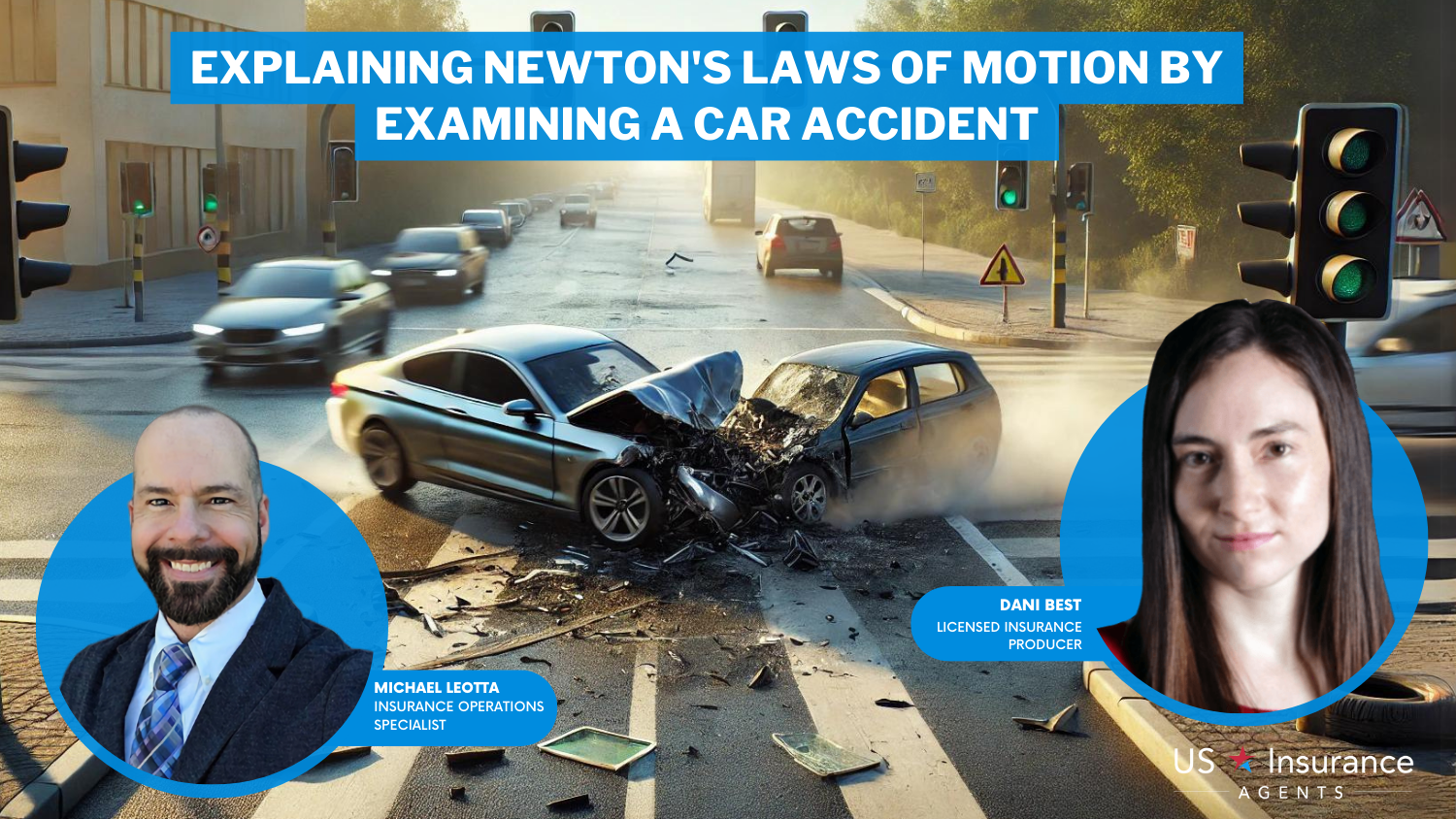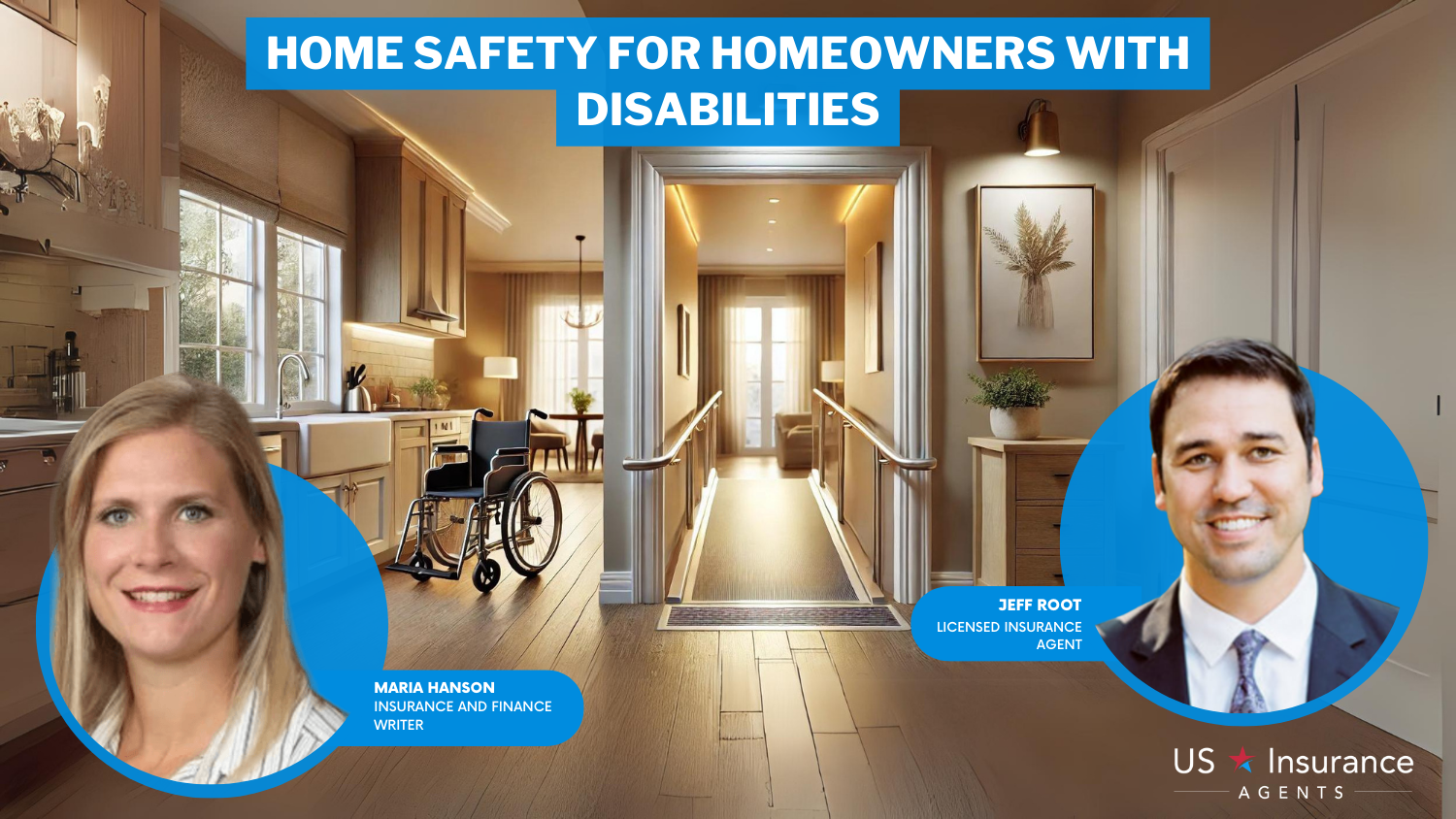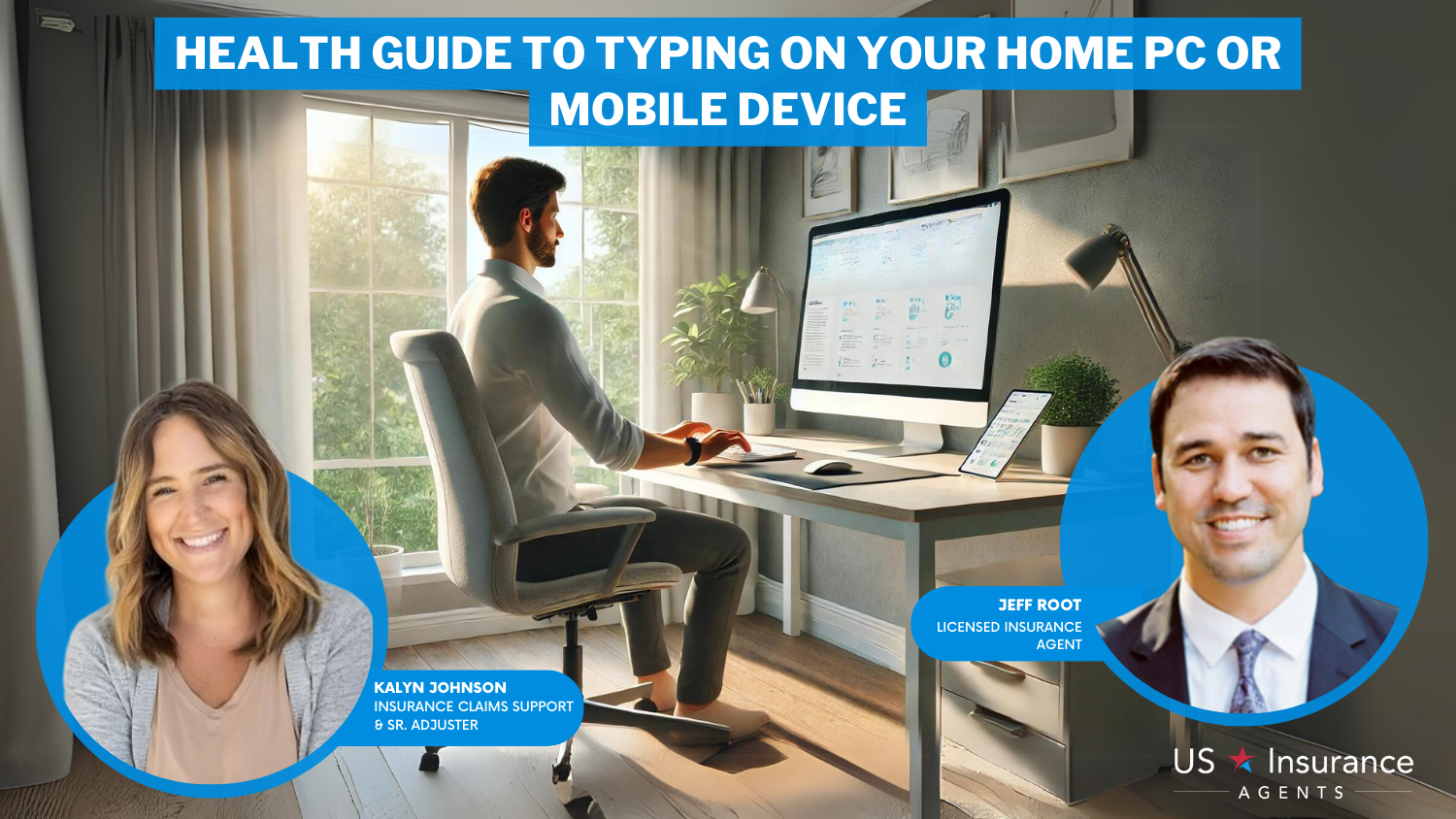Home Preparedness – What to Do in an Earthquake
Learn what to do before, during, and after an earthquake to protect your loved ones and property. Gain valuable insights on creating an emergency plan, securing your home, and assembling a disaster supply kit. Understand the importance of structural reinforcements and how to safely navigate during tremors. Stay informed with expert guidance on assessing risks, identifying safe spots, and communicating effectively during emergencies.
Read more Secured with SHA-256 Encryption





Table of Contents


Insurance and Finance Writer
Dorothea Hudson has been professionally writing in many spheres since 2013. She has written on entertainment, insurance, finance, travel, technology, AI, renewable energy, crypto, fundraising, and real estate for many websites. Her work has been published for British retailer Marks and Spencer, Kroger Magazine, the Vision Group, and more. Her passions include writing, music, running, travel, te...
Dorothea Hudson


Sr. Director of Content
Sara Routhier, Senior Director of Content, has professional experience as an educator, SEO specialist, and content marketer. She has over 10 years of experience in the insurance industry. As a researcher, data nerd, writer, and editor, she strives to curate educational, enlightening articles that provide you with the must-know facts and best-kept secrets within the overwhelming world of insurance....
Sara Routhier


Licensed Insurance Agent
Eric Stauffer is an insurance agent and banker-turned-consumer advocate. His priority is educating individuals and families about the different types of insurance coverage. He is passionate about helping consumers find the best coverage for their budgets and personal needs. Eric is the CEO of C Street Media, a full-service marketing firm and the co-founder of ProperCents.com, a financial educat...
Eric Stauffer
Updated October 2024
Welcome to our comprehensive guide on home preparedness – what to do in an earthquake. Learn how to create an emergency plan, secure your home, assemble a disaster supply kit, identify safe spots, and communicate effectively.
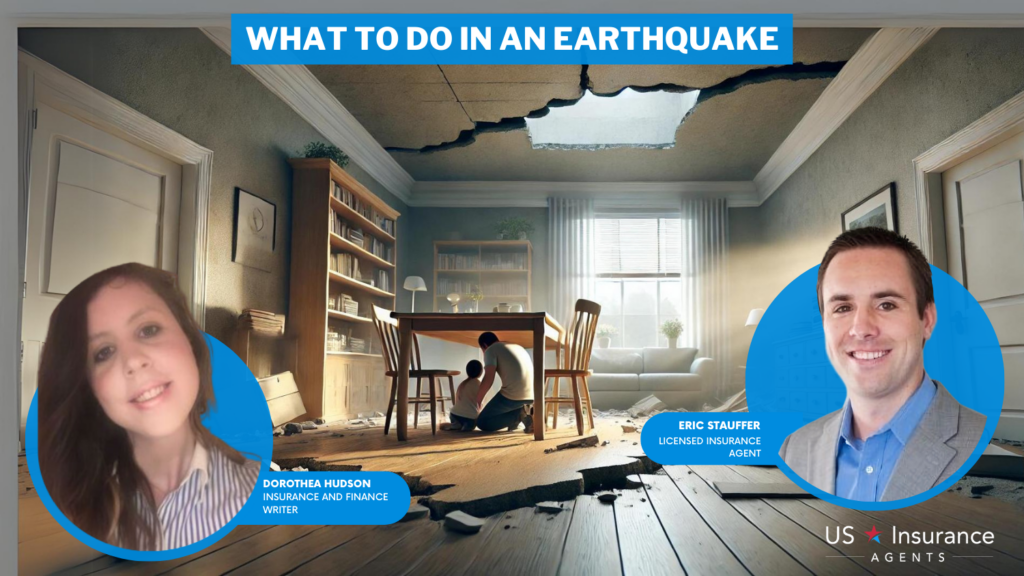
Prioritize the safety of your loved ones and property by being proactive and prepared.
To further protect your home and belongings, it is crucial to have the right insurance coverage. Enter your zip code below and compare rates from the best insurance providers in your area. Prioritize your safety and find the coverage you need today.
What is an Earthquake? What Causes it?
Earthquakes occur when the Earth suddenly begins to shake rapidly. The shaking is caused by the shifting and breaking of rock beneath the surface of the Earth. The large plates that form the Earth’s surface have been moving under, over, and past each other for hundreds of millions of years because of the forces of plate tectonics. When the plates aren’t moving, they are locked together building up energy. When the energy becomes too strong, the plates break apart and cause the ground to shake. The majority of earthquakes occur near the plates’ boundaries, but some occur in the middle of a plate.
Earthquakes can shake the ground so hard that bridges and buildings collapse. An earthquake may also cause tsunamis, fires, flash floods, avalanches, and landslides. They can also disrupt phone, electric, and gas services. There is an elevated risk of damage for structures built on unstable soil because they are often shaken off their foundations during an earthquake. Earthquakes in populated areas frequently cause injury, death, and property damage.
On January 17, 1994, an earthquake struck Northridge, California. Though the area was modern and designed to withstand earthquakes, the damage the earthquake caused approached $20 billion. Fortunately, few were killed during the earthquake. One year later, however, Kobe, Japan was devastated by the most expensive earthquake in history. The area was densely populated, and the people were not prepared for an earthquake. A t least 5,378 people died in the earthquake, and the property damage totaled $96 billion.
Awareness Information
Aftershocks, which are small earthquakes, are common after the main portion of the earthquake is over. These smaller earthquakes may occur from a few hours to a few months after the earthquake, and they can damage weakened buildings further. Some small earthquakes are also foreshocks that signal a larger earthquake.
The shaking ground that occurs during an earthquake is usually not the cause of injury or death. Instead, most deaths and injuries occur as a result of falling objects, flying glass, and collapsing walls. A large amount of earthquake damage is preventable and predictable. Communities should work collaboratively to create family and neighborhood emergency plans.
Earthquake Planning
Families should develop specific disaster plans to implement in the event of an earthquake. Learn about the risk of earthquake in your area and contact local emergency management facilities such as The American Red Cross, to learn about earthquake preparations in your area. In spite of the fact that 41 territories and states are at moderate to high risk, few people know the risk for their region.
When developing a disaster plan:
- Choose a “safe place” in every room of your house. Safe places may be found under tables and desks or against interior walls. Try to find places that you would be able to get to quickly from most places in the room. According to studies, people are more likely to experience injury during an earthquake if they try to move further than 10 feet.
- Practice assuming a safe position in each safe place. Drop to the ground, hold on to something sturdy, and press your face into your arm to protect your eyes. If you practice these actions, they will become an automatic response. People often hesitate when natural disasters occur because they can’t remember what they are supposed to do. Responding automatically can help protect you.
- Practice your safe positions at least twice per year. Practicing frequently helps to reinforce the behavior.
- Talk to an insurance agent. Earthquake insurance requirements differ by location. If your home is located near an active fault, consider purchasing a policy.
- Keep people informed. Everyone who spends time in your home, including caregivers, babysitters, and guests, should be aware of your family’s disaster plan. This practice ensures that the people in your home will respond to situations appropriately even when you aren’t there.
- Get training. Contact your local Red Cross chapter and sign up for a first aid course. Learn how to use a fire extinguisher, and make sure all of your training is up-to-date. Knowing that you are trained allows you to keep calm in the event of an earthquake.
- Talk to your family. All family members should know what must be done in the event of an emergency. Discussing disasters before they happen reduces anxiety and fear.
What to Tell Kids
- Locate a safe place in your classroom and each room of your house. Find a safe place inside of other buildings you enter frequently. You will be safer if you only travel short distances when the ground starts shaking. You must be prepared wherever you are because an earthquake may occur at any time.
- If an earthquake begins while you are inside, drop, hold on, and cover. Crawl under a table, desk or bench and hold on to one of the legs. Cover your eyes with your arm. If there is nothing for you to crawl under, sit down next to a wall toward the middle of the building. Interior walls don’t collapse as frequently. Move away from anything that may fall on you, such as a bookcase. Do not run outside, because debris may fall from a building and injure you.
- Remain in the safe place you chose until the shaking is over, and then check yourself for injuries. Make sure you are not hurt first, and then check on other people. You will be able to help them better if you have already taken care of yourself. Move through the area carefully and watch for hazards, such as broken glass. Be prepared for aftershocks, which are smaller earthquakes that occur after a larger one.
- Look for fires. The most common hazard after an earthquake is fire. Fires occur due to damaged appliances, broken electrical lines, and broken gas lines.
- Do not use an elevator to leave the building. Use the stairs. During an earthquake, sprinklers and fire alarms will go off. There may or may not be a fire, so use the stairs to be safe.
- If an earthquake begins while you are outside, don’t try to go inside. Move away from power lines, streetlights, trees, and buildings. Cover your head and crouch down. It is not uncommon for injuries to occur within 10 feet of a building’s entrance. Debris may fall from the building and injure you if you try to enter. Power lines, streetlights, and trees may also fall.
Put Together a Supply Kit for Disasters
An earthquake supply kit should include basic disaster supplies, a flashlight, and sturdy shoes for each family member.
Protecting Your Property
- Bolt tall furniture to wall studs. Anchor or brace top-heavy objects. Such items may fall during an earthquake and cause injury or damage.
- Anchor other items capable of falling, such as computers, books, and televisions. Items that fall may cause injuries.
- Install bolts or strong latches on all cabinets. The items inside of a cabinet may move around during an earthquake. Latches and bolts will stop the doors from opening, which would allow the contents to fall out.
- Move fragile items, heavy objects, and large objects to the lowest shelves. When these items are on the lowest shelves, there is less chance for damage and injury.
- Keep china, glass, bottled foods, and other breakable items in closed cabinets with latches.
- Keep flammable items, pesticides, and weed killers in low cabinets with latches. In confined locations, chemical products aren’t as likely to cause hazards.
- If you hang mirrors, pictures, and other heavy items, keep them away from places people are likely to sit, such as couches and beds. During an earthquake, items may fall off walls, which can cause injuries and damage.
- Secure overhead lights. During an earthquake, lights may fall and cause injuries or damage.
- Secure the water heater by strapping it to wall studs. Water heaters are often the best source for water after an earthquake.
- Secure gas appliances. Gas lines may cause fire hazards following an earthquake.
- Prevent water and gas leaks by installing flexible pipefittings. These fittings won’t break as easily.
- Repair cracks in foundations and ceilings. If you find signs of a structural defect, get expert advice. An earthquake can cause an existing rupture or crack to grow.
- Make sure that your house is securely bolted to the foundation. When a home is bolted to its foundation, it won’t be as likely to sustain damage during an earthquake. When a home is not bolted, it may slide off its foundation.
- Ask a structural design engineer to evaluate your home. Inquire about strengthening tips and home repair. Learn additional ways to protect your home and reduce the potential for damage.
Community Education Ideas
- Request stronger building codes. The building code is a community’s first defense against damage from an earthquake. These codes determine the level of earthquake that each structure must be designed to survive in.
- Publish emergency information in your local newspaper. Print the phone number for your local emergency service, hospitals, and the American Red Cross.
- Publish a newspaper series dedicated to locating earthquake hazards within the home.
- Work with the American Red Cross and your local emergency service to create a special report for individuals with physical disabilities.
- Offer advice about home earthquake drills.
- Conduct interviews with representatives of the water, electric, and gas companies about turning off utilities.
What You Can Do During an Earthquake
- Drop, hold on, and cover! Move to the nearest safe place. Try not to move any more than five feet to avoid injury. It is extremely dangerous to leave any building during an earthquake because you may be injured by falling objects. Fatalities often occur when people exit buildings and run. In the United States, it is typically safer to remain in a building.
- If an earthquake begins while you are in bed, stay there. Use a pillow to protect your head and hold on. Staying where you are is safer than trying to move. If you try to roll to the floor or get to a doorway, you may become injured by broken glass on the floor.
- If an earthquake begins while you are outside, find a safe place away from power lines, streetlights, trees, and buildings. Crouch down and remain stationary until the earthquake ends. Building debris, power lines, streetlights, and falling trees can all cause injuries.
- If an earthquake begins while you are driving, pull your vehicle to a safe location, stop the car, and remain stationary with your seatbelt on until the earthquake ends. Overhead items, street signs, poles, power lines, and trees may fall during an earthquake. If you stop your car, the risk of injury will be reduced. Hardtop vehicles will also protect you from flying or falling objects. Drive carefully after the earthquake ends, and avoid ramps and bridges that may have sustained damage.
- If you are inside when an earthquake begins, don’t exit until the earthquake is over. Injuries are more likely to occur when you try to move during an earthquake. When you go outside after the earthquake ends, get away from the building quickly so that you don’t become injured by falling debris.
- Don’t go near windows. A window can shatter with enough force to injure you even if you are several feet away.
- If you are in a tall building during an earthquake, expect that sprinklers and fire alarms will go off. Earthquakes often cause fire sprinkler systems and fire alarms to engage even when there isn’t a fire. Look for small fires and extinguish them. If you exit the building, use the stairs.
- Move to higher ground if an earthquake occurs while you are in a coastal area. Earthquakes often cause tsunamis.
- If an earthquake occurs while you are in a mountainous area, be cautious and look for falling rocks or debris. Landslides are common following an earthquake.
What You Can Do After an Earthquake
- Check your body for injuries . People often help others before they check themselves for injuries. You will have an easier time caring for someone else if you have already taken care of yourself.
- Put on work gloves, sturdy shoes, a long-sleeved shirt, and long pants to protect yourself from danger. This minimizes the chance of injury from broken objects.
- Help people who are trapped or injured after you have received first aid. Call 911 and offer first aid when necessary. Do not try to move a person that is seriously injured unless he or she is in danger of sustaining another injury.
- Eliminate fire hazards, and extinguish fires when possible. Use available resources to eliminate small fires. After an earthquake, fires are the most common complication.
- If you don’t smell gasoline or believe that the gas line is damaged, do not shut off the gas. If you shut off the gas, you must wait for a professional to turn it back on in order to avoid injury. After an earthquake, it could take months for a professional to turn it on.
- Clean up flammable liquids immediately.
- Open cabinets and closets with caution. The contents of a cabinet or closet may shift during an earthquake.
- Look for damage around your home, and evacuate everyone if you believe the building isn’t safe. After an earthquake, aftershocks may cause additional damage to an unstable building.
- Offer assistance to neighbors with special needs. People who have disabilities or are elderly may need help. Offer assistance if possible.
- Listen for emergency information on a battery-operated radio. This may be the best source of information if your electricity is out.
- Look out for aftershocks. If you feel an aftershock, crouch down, hold on, and cover your eyes. An aftershock can occur up to several months after an earthquake.
- Look out for damaged areas, broken gas lines, and fallen power lines.
- Stay away from damaged structures. Do not return to a damaged building until authorities declare it safe.
- Use flashlights or battery-powered lanterns to look for damage in your home. Using matches, candles, or torches may cause a fire.
- If you have a chimney, inspect it carefully for damage. Damage in a chimney may cause a fire or falling debris. If there is a crack in the chimney, it may cause a fire several years later.
- For insurance purposes, take picture of damages.
- Don’t smoke inside a building as it may cause a fire.
- Use caution when entering any building. A building may be damaged where you don’t expect it to be. Be careful with every step.
- Check windows, staircases, doors, floors, and walls to ensure that the structure is not going to collapse.
- Look for gas line leaks. If you hear a hissing or blowing sound, or if you smell gasoline, open a door or window and exit the building as quickly as possible. Use the main valve to turn off the gas if possible. Go to a neighbor’s home to call the utility company. A professional must turn the gas back on if you shut it off for any reason.
- Check electrical systems for damage. If you smell burning insulation or you find frayed wires, shut the electricity off at the circuit breaker or main fuse box. Do not touch the circuit breaker or fuse box if you must step in water to do so.
- Check water and sewage lines for damage. Do not use the toilets if you believe your sewage lines are damaged. If you believe your water pipes are damaged, avoid using water from the tap and call the water company. To acquire safe water, melt ice cubes or remove it from an undamaged water heater.
- Look out for falling ceiling, drywall, and plaster .
- Only use the telephone in the event of a life-threatening emergency. During disaster situations, telephone lines sometimes become overwhelmed. Keep them clear for emergency calls.
- Monitor pets closely. Put dogs on leashes and keep them in a fenced area. Animals may behave strangely after an earthquake. Dogs or cats that are usually friendly may become defensive or aggressive.
Other Earthquake Resources
- Earthquake Preparedness
- Is Your Family Prepared for an Earthquake?
- The Seven Steps to Earthquake Safety
- Earthquake Education for Schools
- Preparation is Key to Earthquake Safety
- What Can I Do to Prepare?
- What Can I Do to Prepare for an Earthquake?
- Earthquake Emergency Preparation (PDF)
- Your Earthquake Risk
- During an Earthquake: Indoor Safety
- About Earthquakes
- Earthquake
- Drop, Cover, and Hold (PDF)
- Earthquake Safety Checklist (PDF)
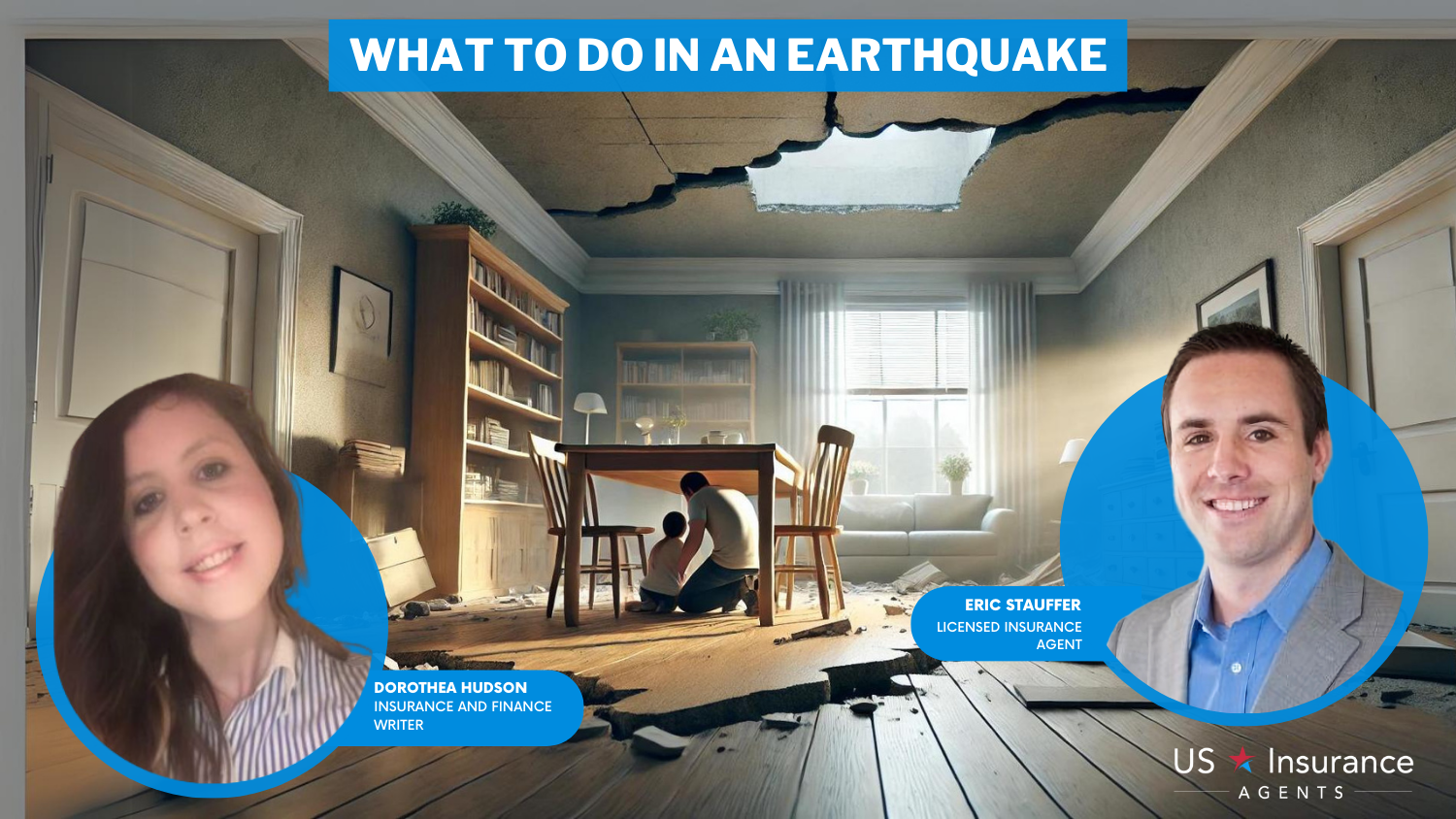
Frequently Asked Questions
What should I do before an earthquake?
A: Before an earthquake, you should secure all heavy objects, such as bookshelves and water heaters, to the wall. You should also create an emergency supply kit that includes water, non-perishable food, first aid supplies, and flashlights. Make sure you have a plan in place for how to communicate with loved ones in case of an emergency, and practice drop, cover, and hold on drills.
What should I do during an earthquake?
During an earthquake, the most important thing to do is drop, cover, and hold on. This means dropping to the ground, taking cover under a sturdy table or desk, and holding on until the shaking stops. If you can’t get under a table or desk, try to find a spot near an interior wall and cover your head and neck with your arms.
What should I do after an earthquake?
After an earthquake, check yourself and others for injuries. If you are trapped, do not move unless you are in immediate danger. If you can move safely, exit the building and go to an open area away from buildings and power lines. Do not use elevators, and be aware of potential hazards, such as broken glass and falling debris.
Will my homeowners insurance cover damage from an earthquake?
Standard homeowners insurance policies do not cover damage from earthquakes. You will need to purchase a separate earthquake insurance policy to cover this type of damage.
How do I purchase earthquake insurance?
You can purchase earthquake insurance through most insurance companies. Contact your insurance provider to see if they offer earthquake insurance and to get a quote. You can also purchase earthquake insurance through the California Earthquake Authority.
What does earthquake insurance cover?
Earthquake insurance typically covers damage to your home and personal belongings caused by an earthquake. It may also cover the cost of additional living expenses if you need to relocate while your home is being repaired. However, earthquake insurance policies may have deductibles that are much higher than regular homeowners insurance policies.
How much does earthquake insurance cost?
The cost of earthquake insurance depends on many factors, including the age and location of your home, the materials it’s made of, and the coverage amount you choose. On average, earthquake insurance in California costs between $800 and $1,500 per year, but it can be much higher in high-risk areas or for older homes.
Get a FREE Quote in Minutes
Insurance rates change constantly — we help you stay ahead by making it easy to compare top options and save.


